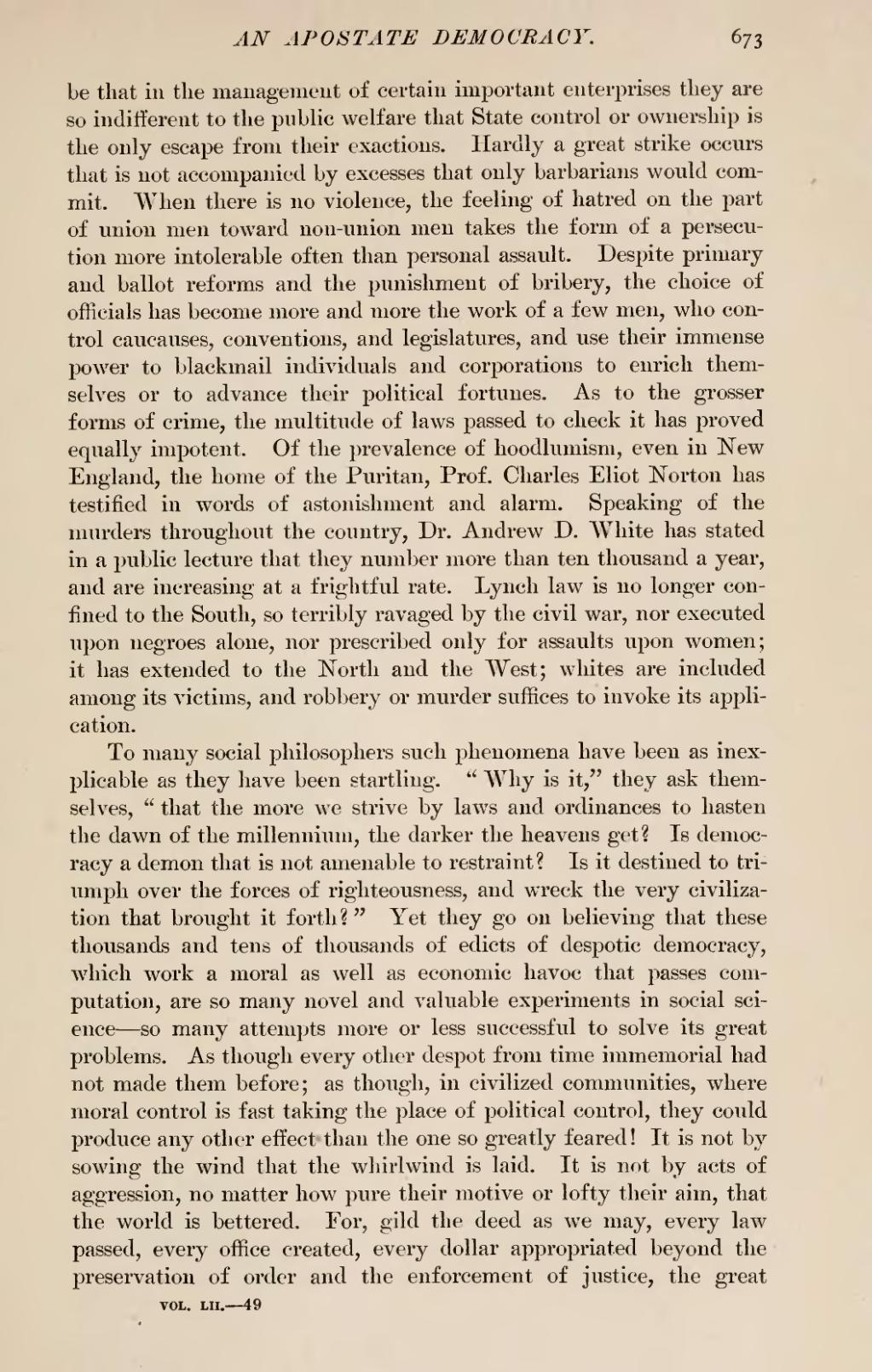be that in the management of certain important enterprises they are so indifferent to the public welfare that State control or ownership is the only escape from their exactions. Hardly a great strike occurs that is not accompanied by excesses that only barbarians would commit. When there is no violence, the feeling of hatred on the part of union men toward non-union men takes the form of a persecution more intolerable often than personal assault. Despite primary and ballot reforms and the punishment of bribery, the choice of officials has become more and more the work of a few men, who control caucauses, conventions, and legislatures, and use their immense power to blackmail individuals and corporations to enrich themselves or to advance their political fortunes. As to the grosser forms of crime, the multitude of laws passed to check it has proved equally impotent. Of the prevalence of hoodlumism, even in New England, the home of the Puritan, Prof. Charles Eliot Norton has testified in words of astonishment and alarm. Speaking of the murders throughout the country, Dr. Andrew D. White has stated in a public lecture that they number more than ten thousand a year, and are increasing at a frightful rate. Lynch law is no longer confined to the South, so terribly ravaged by the civil war, nor executed upon negroes alone, nor prescribed only for assaults upon women; it has extended to the North and the West; whites are included among its victims, and robbery or murder suffices to invoke its application.
To many social philosophers such phenomena have been as inexplicable as they have been startling. "Why is it," they ask themselves, "that the more we strive by laws and ordinances to hasten the dawn of the millennium, the darker the heavens get? Is democracy a demon that is not amenable to restraint? Is it destined to triumph over the forces of righteousness, and wreck the very civilization that brought it forth?" Yet they go on believing that these thousands and tens of thousands of edicts of despotic democracy, which work a moral as well as economic havoc that passes computation, are so many novel and valuable experiments in social science—so many attempts more or less successful to solve its great problems. As though every other despot from time immemorial had not made them before; as though, in civilized communities, where moral control is fast taking the place of political control, they could produce any other effect than the one so greatly feared! It is not by sowing the wind that the whirlwind is laid. It is not by acts of aggression, no matter how pure their motive or lofty their aim, that the world is bettered. For, gild the deed as we may, every law passed, every office created, every dollar appropriated beyond the preservation of order and the enforcement of justice, the great
